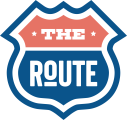
David Schaper
David Schaper is a correspondent on NPR's National Desk, based in Chicago, primarily covering transportation and infrastructure, as well as breaking news in Chicago and the Midwest.
In this role, Schaper covers aviation and airlines, railroads, the trucking and freight industries, highways, transit, and new means of mobility such as ride hailing apps, car sharing, and shared bikes and scooters. In addition, he reports on important transportation safety issues, as well as the politics behind transportation and infrastructure policy and funding.
Since joining NPR in 2002, Schaper has covered some of the nation's most important news stories, including the Sandy Hook school shooting and other mass shootings, Hurricane Katrina and its aftermath, the 2010 earthquake in Haiti, California wildfires, the BP oil spill in the Gulf of Mexico, and numerous other disasters. David has also reported on presidential campaigns in Iowa and elsewhere, on key races for U.S. Senate and House, governorships, and other offices in the Midwest, and he reported on the rise of Barack Obama from relative political obscurity in Chicago to the White House. Along the way, he's brought listeners and online readers many colorful stories about Chicago politics, including the corruption trials and convictions of two former Illinois governors.
But none of that compares to the joy of covering his beloved Chicago Cubs winning the World Series in 2016, and three Stanley Cup Championships for the Chicago Blackhawks in 2010, 2013, and 2015.
Prior to joining NPR, Schaper spent almost a decade working as an award-winning reporter and editor for WBEZ/Chicago Public Media, NPR's Member station in Chicago. For three years he covered education issues, reporting in-depth on the problems and progress — financial, educational and otherwise — in Chicago's public schools.
Schaper also served as WBEZ's Assistant Managing Editor of News, managing the station's daily news coverage and editing the reporting staff while often still reporting himself. He later served as WBEZ's political editor and reporter; he was a frequent fill-in news anchor and talk show host. Additionally, he has been an occasional contributor guest panelist on Chicago public television station WTTW's news program, Chicago Tonight.
Schaper began his journalism career in La Crosse, Wisconsin, as a reporter and anchor at Wisconsin Public Radio's WLSU-FM. He has since worked in both public and commercial radio news, including stints at WBBM NewsRadio in Chicago, WXRT-FM in Chicago, WDCB-FM in suburban Chicago, WUIS-FM in Springfield, Illinois, WMAY-AM in Springfield, Illinois, and WIZM-AM and FM in La Crosse, Wisconsin.
Schaper earned a bachelor's degree in mass communications and history at the University of Wisconsin-La Crosse and a master's degree in public affairs reporting at the University of Illinois-Springfield. He lives in Chicago with his wife, a Chicago Public School teacher, and they have three adult children.
-
No boarding pass or ID was needed to go to the gate, and 4-inch-blade knives were allowed aboard planes. Now we take off shoes, can't have liquids over 3.4 oz and go through high-tech body scanners.
-
Perhaps nothing changed more quickly and dramatically in the aftermath of the terrorist attacks than commercial airline travel. We look at how air travel security has improved and evolved in 20 years.
-
Spirit and American have canceled hundreds of flights in recent weeks. Meanwhile, a key member of Congress is calling on the FAA to crack down on travelers who turn violent.
-
Infrastructure spending is considered one of the few issues on which the two parties can agree, but there are still differences that seem to reflect the nation's broader partisan and cultural divide.
-
The ripple effects of decisions made throughout the pandemic could mean disruptions for thousands of passengers throughout the busy summer travel season.
-
Interest in international air travel is rising. If you're want to fly out of or into the United States, there's a lot you need to know. Here are answers to key questions.
-
As Americans start to fly again, incidents involving unruly airline passengers are taking off. Fights over people refusing to wear masks are especially common.
-
There's no universal digital passport yet, it's not clear exactly what kind of proof will be accepted, and paper vaccination cards can be easily forged, damaged or lost.
-
Airlines got billions in federal COVID-19 aid over the past year, but consumer advocates and two senators say the companies are sitting on nearly $15 billion in refunds owed for canceled travel.
-
Amid a sudden surge in demand for domestic travel, especially to beach destinations and national parks, decimated airlines are adding service to new markets as they try to inch back to profitability.









